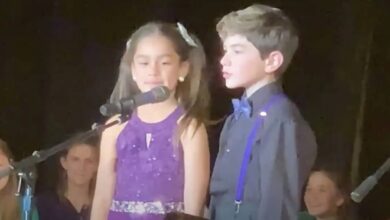Patsy Cline’s Charm Shines in “Crazy”
“Crazy,” penned by the legendary songwriter Willie Nelson, holds a significant position within the pantheon of country music. Its poignant lyrics and emotionally charged melodies craft a story that resonates with anyone who has experienced the tumultuous feelings associated with love and loss. Notably, while Nelson wrote the song, it was Patsy Cline’s extraordinary rendition in 1961 that transformed it into a timeless classic, thus shaping both her career and the trajectory of country music as a genre.
The essence of “Crazy” lies in its exploration of heartache and longing. The narrator reflects on a love that has slipped away, intertwined in a tapestry of memories that evoke both tenderness and pain. This feeling of longing is common in country music, where themes of heartbreak often echo in songs, giving voice to the emotional struggles of many. Cline’s interpretation is especially powerful, as her voice imbues the lyrics with vulnerability, allowing listeners to feel the weight of each word. It is this emotional authenticity that makes her performance truly resonant, enabling listeners to connect with the song on a deeply personal level.
Cline’s ascent to success was bolstered by the reception of “Crazy,” which climbed to number 2 on the Billboard Hot Country Songs chart. This impressive achievement underscored her emergence as one of the foremost figures in the music landscape during the early ’60s. The song became emblematic of Cline’s ability to blend emotional honesty with a distinctive sound, qualities that endeared her to fans and critics alike. As a trailblazer for women in country music, Cline shattered stereotypes and opened doors for future generations of female artists.
The instrumental arrangement of “Crazy” also plays a crucial role in its emotional impact. The lush orchestral backing, featuring sweeping strings and delicate piano, creates an ethereal quality that enhances the song’s somber themes. This integration of country elements with more dramatic orchestration exemplifies the genre’s flexibility and Cline’s capacity to transcend traditional boundaries in music. The combination of heartfelt lyrics and rich instrumentation allows listeners to experience the profound sorrow and beauty encapsulated in the song.
Notably, Willie Nelson later recorded his own version of “Crazy,” which showcased his unique style that marries country with jazz and blues influences. His interpretation features a languid vocal delivery and intricate guitar work, offering a fresh perspective on a song that is deeply ingrained in the fabric of country music. This adaptability serves as a reminder of the song’s universal themes, proving that great songwriting can traverse genres while retaining its emotional resonance.
Tragically, Cline’s life was cut short in a plane crash in 1963. However, her legacy has only grown since her passing, with “Crazy” becoming synonymous with her memory. Many believe that had she not died so young, her impact on music would have been even more profound. The song has evolved into a significant piece of her artistic legacy, cementing her status not merely as a singer but as an accomplished storyteller whose work continues to touch lives.
The years following the initial release of “Crazy” have seen a plethora of artists reinterpret the song across diverse genres. From Linda Ronstadt, whose cover infused the track with a pop sensibility, to contemporary interpretations by musicians like Diana Krall and Chris Isaak, “Crazy” remains relevant, continuously reaching new audiences. Each artist brings their own sensibilities to the song, showcasing its versatility and the enduring power of its emotional core.
In addition to its musical relevance, “Crazy” has found a place in popular culture, often featured in films and television shows that underscore its thematic elements of love and loss. The song’s haunting melody and poignant lyrics evoke memories that enhance the narrative depth of cinematic stories, further establishing “Crazy” as more than just a song but a cultural artifact that resonates across contexts.
Patsy Cline, born Virginia Patterson Hensley in 1932, carved out a vital space for herself in a predominantly male industry. As one of the first women to attain such widespread acclaim in country music, her influence is palpable in the careers of countless female artists today who consider her a pioneering force. Cline’s emotional expression and unique vocal abilities in songs like “Crazy” mark her as a lasting figure in American music history, with a legacy that continues to inspire.
In sum, “Crazy” is a remarkable testament to the artistry of songwriting and the profound ability of music to articulate the complexities of human emotions. Its rich lyrical content, combined with the evocative performances by Patsy Cline and Willie Nelson, ensure its place in the hearts of listeners both past and present. The lasting allure of “Crazy” exemplifies the power of authentic storytelling through song, bridging generations and inviting new listeners to engage with its timeless beauty. Each subsequent rendition serves not only to reuse the melody and lyrics but to reinvigorate their meanings, as artists continue to honor the legacy of Cline and Nelson through their own interpretations.





